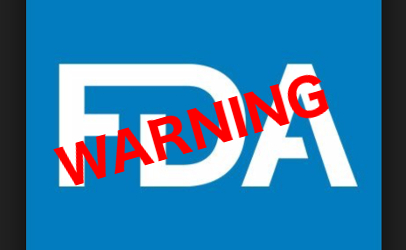Resident Salmonella in food plant sparks warning regarding cereal production
article from the Food Safety News
A company that provides a variety of goods and services to the food
industry — including coatings that are used on breakfast cereals — is on
notice from the FDA for failure to control Salmonella bacteria in its
Gridley, IL, production plant.
Although the Food and Drug Administration blacked out key details in a
warning letter it sent to the corporation, the document reveals that
government inspectors were not the only people to find Salmonella in the
cereal production rooms at Kerry Inc. The company’s own tests returned
repeated positive results for Salmonella for 18 months while it
continued to produce and ship cereal.
At least two of those months overlap with an ongoing Salmonella
outbreak linked to Kellog’s brand Honey Smacks cereal. The outbreak has
sickened 100 people across 33 states, resulting in 30 people being
admitted to hospitals, according to the most recent update from the
Centers for Disease Control and Prevention, which posted July 12.
The FDA’s warning letter does not reference the outbreak or the
massive multi-national recall of Honey Smacks initiated by Kellogg’s on
June 14. In its recall notice, Kellogg’s reported that it had contracted
with another company to produce the cereal.
No additional details are available for the public about whether
Kerry Inc. produces cereal for Kellogg’s, an FDA spokesperson said on
July 31. The agency’s investigation is ongoing.

“Between
Sept. 29, 2016, and May 16, 2018, you repeatedly found Salmonella
throughout your facility, including in cereal production rooms. During
this time period, you had 81 positive Salmonella environmental samples
and 32 positive Salmonella vector samples — samples taken in response to
finding a positive on routine testing…,” according to a July 26 warning
letter sent to Kerry Inc. and made public July 31 by the FDA. The
agency blacked out the specific types of Salmonella the company found in
its plant.
“Further, you had repeated findings of other Salmonella species in
some production lines and rooms used for the manufacture of cereal.
These repeated findings of Salmonella in your environment should have
resulted in a reanalysis of your food safety plan as required by
(federal law) and the identification of contamination of RTE
(ready-to-eat) cereal with environmental pathogens as a hazard requiring
a preventive control, i.e., sanitation preventive control.”
Inspectors found other significant food safety problems in the cereal
production areas at Kerry Inc. One of those problems was allowing
finished ready-to-eat cereal to be exposed to the environment before
packaging without going through a kill step.
Compounding the problem of exposing the finished cereal to the
environment is the fact that the company’s food safety plans and
protocols do not include prevention measures for the known hazard.
The Kerry Inc. “hazard analysis for the cereal … did not identify
contamination of RTE cereal with the environmental pathogen of
Salmonella as a food safety hazard requiring a preventive control,” the
FDA warning letter says.
“Salmonella contamination of RTE cereal from the environment is a
known or reasonably foreseeable hazard that should have been identified
as a hazard requiring a preventive control.”
Other violations of federal law listed in the warning letter include:
- Failure to implement sanitation controls adequate to ensure the plant is maintained in a manner to minimize or prevent the hazard of the environmental pathogen Salmonella;
- Failure to conduct and document a root cause analysis for the persistent findings of Salmonella in your facility during the time period of Sept. 29, 2016, to May 16, 2018;
- No documentation that the company formed a response team to determine the root cause and corrective actions necessary to prevent the routine reoccurrence of Salmonella throughout your facility during the time period of Sept. 29, 2016, to May 16, 2018.
The FDA acknowledged that Kerry Inc. officials have “committed to
performing corrective actions both verbally and in a written response
dated July 23, 2018.” Those corrective actions include hiring a
third-party consultant, conducting a root-cause analysis and plans to
update the company’s food safety procedures and practices.
No comments:
Post a Comment